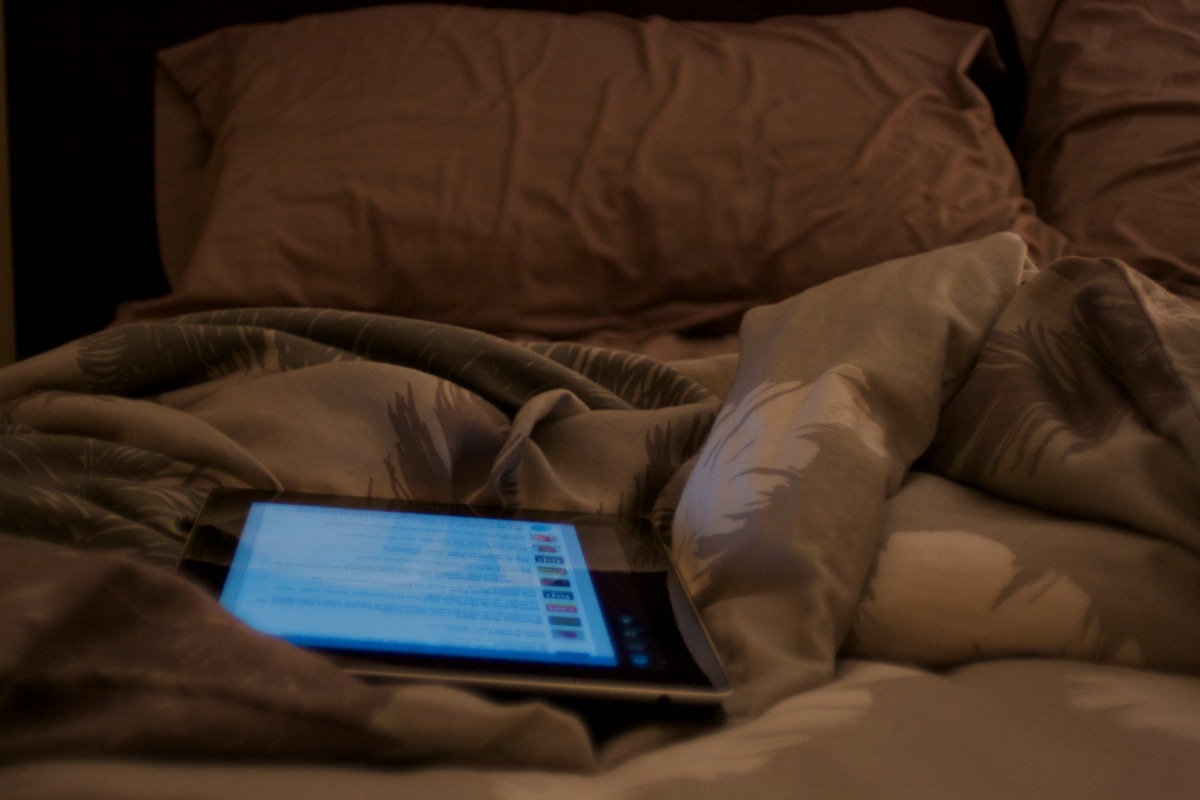E-Books May Be Ruining Your Sleep
If you’re using an iPad or other form of e-reader to “curl up” with a good book at night, you may be sacrificing precious sleeping time, according to a new study by Brigham and Women’s researchers.
In the small study, light-emitting electronic devices (LE-eBooks), specifically, iPads, kept readers awake longer than those reading a printed book—good news if you want to plow through the new Dennis Lehane, bad news if you actually want to fall asleep.
The findings of the study were published in the journal, Proceedings of the National Academy of Sciences, on December 22.
The researchers compared the “biological effects” of reading an LE-eBook compared to a printed book, and found LE-eBooks “adversely impact overall health, alertness, and the circadian clock which synchronizes the daily rhythm of sleep to external environmental time cues.”
“We found the body’s natural circadian rhythms were interrupted by the short-wavelength enriched light, otherwise known as blue light, from these electronic devices,” said Anne-Marie Chang, PhD, the study’s corresponding author and associate neuroscientist in BWH’s Division of Sleep and Circadian Disorders. “Participants reading an LE-eBook took longer to fall asleep and had reduced evening sleepiness, reduced melatonin secretion, later timing of their circadian clock, and reduced next-morning alertness than when reading a printed book.”
According to the study:
During the two-week inpatient study, twelve participants read LE-e-Books on an iPad for four hours before bedtime each night for five consecutive nights. This was repeated with printed books. The order was randomized with some reading the iPad first and others reading the printed book first. Participants reading on the iPad took longer to fall asleep, were less sleepy in the evening, and spent less time in REM sleep. The iPad readers had reduced secretion of melatonin, a hormone which normally rises in the evening and plays a role in inducing sleepiness.
Additionally, iPad readers had a delayed circadian rhythm, indicated by melatonin levels, of more than an hour. Participants who read from the iPad were less sleepy before bedtime, but sleepier and less alert the following morning after eight hours of sleep. Although iPads were used in this study, BWH researchers also measured other eReaders, laptops, cell phones, LED monitors, and other electronic devices, all emitting blue light.
“In the past 50 years, there has been a decline in average sleep duration and quality,” said Dr. Charles Czeisler, of BWH’s Division of Sleep and Circadian Disorders. “Since more people are choosing electronic devices for reading, communication and entertainment, particularly children and adolescents who already experience significant sleep loss, epidemiological research evaluating the long-term consequences of these devices on health and safety is urgently needed.”
The researchers say that studies like this are important because the chronic suppression of melatonin secretion by light exposure at night has been linked to a slew of ailments such as breast cancer, colorectal cancer, and prostate cancer.
So maybe it’s time to renew that library card.



